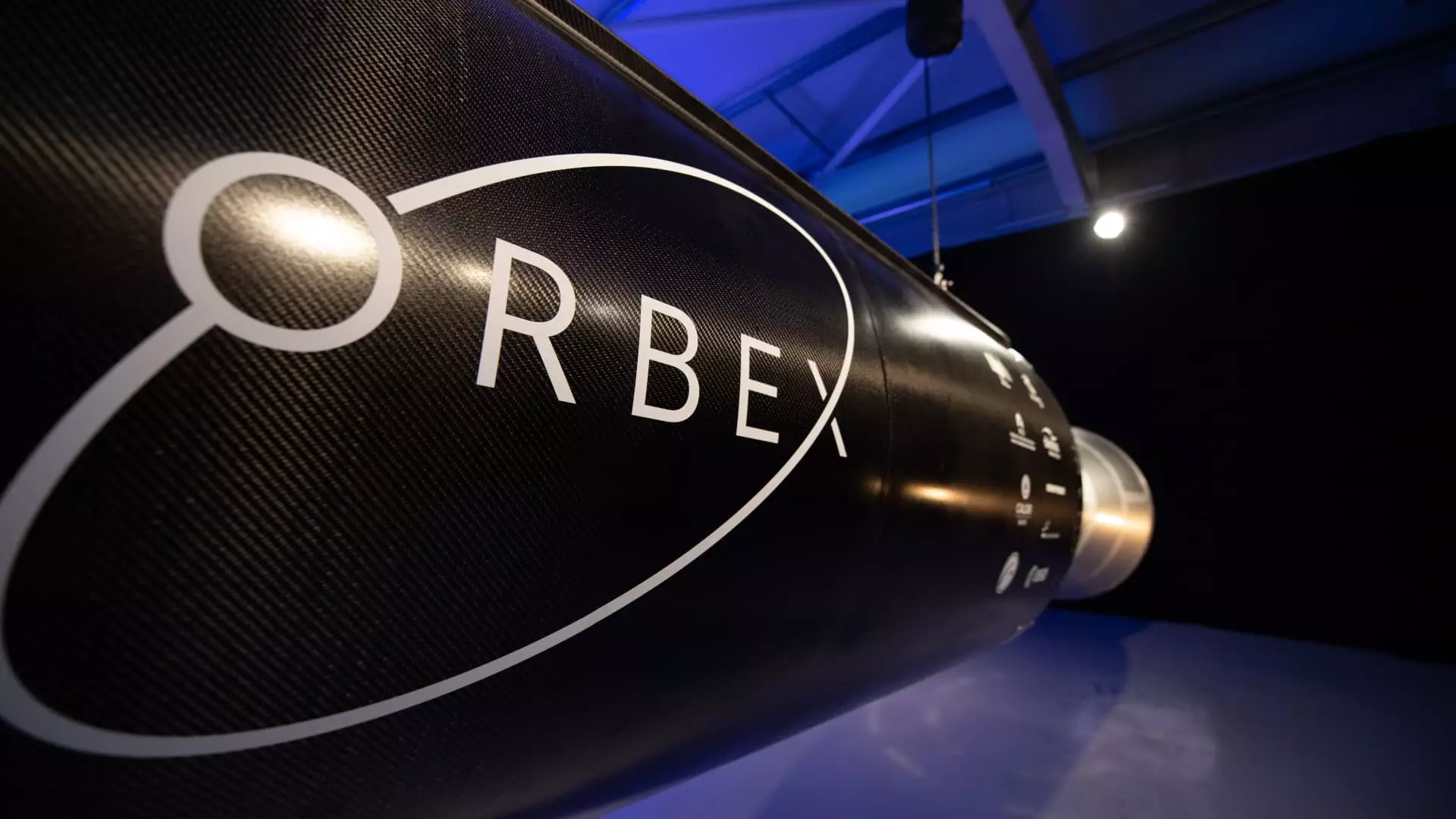In a significant move that underscores its commitment to space exploration and technology, the U.K. government has announced a £20 million ($24.8 million) investment in Orbex, a burgeoning Scottish startup aiming to make waves in the competitive space launch sector. This strategic financial support, disclosed during the European Space Conference in Brussels, is part of a larger funding round that the company is currently pursuing. As the landscape of space travel continues to evolve, initiatives like these reflect the ambitions and visions that nations and companies are striving to achieve in this dynamic industry.
Orbex: A New Contender Against Industry Giants
Founded to develop innovative space launch solutions, Orbex is carving out a niche for itself by designing small and medium-sized rockets. Their flagship rocket, aptly named Prime, stretches an impressive 19 meters in length and is poised to debut its first launch by late 2025. Unlike traditional rockets that frequently rely on fossil fuels, Orbex adopts a more environmentally sustainable approach, utilizing bio-propane as their primary fuel source. This unconventional choice not only positions them as a responsible player in an increasingly eco-conscious industry but also offers significant advantages in terms of reducing carbon emissions.
Orbex’s strategy extends well beyond just debuting a single rocket; it’s firmly focused on competing on the European stage against established names such as SpaceX. The company’s CEO, Phillip Chambers, highlighted the U.K. government’s investment as a potent symbol of faith in the country’s burgeoning space manufacturing and launch capabilities. By securing funding from private sector investors, including Denmark’s Export & Investment Fund and former Informatica CEO Sohaib Abbasi, Orbex is assembling a strong coalition of supporters to bolster its ambitious development agenda.
Government Support: A Commitment to National Space Ambitions
The U.K. government’s backing of Orbex ties into a broader effort to cultivate homegrown space capabilities as the country seeks to enhance its stature in the global space economy. British Tech Minister Peter Kyle articulated the investment’s role in “turbocharging” the U.K.’s position in the space sector, emphasizing its potential to facilitate regular launches from British soil. By providing a solid financial foundation for Orbex and other startups, the government aims to create a sustainable ecosystem for space innovation and manufacturing within its borders.
Additionally, the government’s ongoing stake in related ventures, such as Eutelsat OneWeb, further showcases a layered approach to developing the U.K.’s satellite communications and launch capabilities. The previous rescue deal for OneWeb, executed in partnership with India’s Bharti, set a precedent for strategic intervention that suggests the U.K. is committed to becoming a key player in the increasingly competitive space industry.
The case for sustainability in space launches has gained traction in recent years, and Orbex is at the forefront of this vital conversation. A study conducted by the University of Exeter in 2021 revealed that a single launch of the Prime rocket could produce up to 96% fewer carbon emissions than traditional launch methods utilizing fossil fuels. As environmental considerations loom large in public discourse, companies that prioritize sustainability are likely to win favor with regulators, consumers, and investors alike.
Orbex’s activities align with a growing recognition of the need to minimize the environmental footprint of space exploration. As the demand for satellite launches continues to expand, the ability to offer greener alternatives is likely to become a decisive factor in attracting business in a marketplace increasingly influenced by sustainability metrics.
While Orbex has captured attention with its innovative approach and government backing, it is far from the only player in the U.K. space launch market. Companies like Skyrora and German startup Rocket Factory Augsburg (RFA) are also eyeing their opportunities to establish a foothold in this niche. Skyrora has openly expressed ambitions to conduct its own satellite launches from U.K. soil in the near future, while RFA anticipates a U.K. launch for its rocket in 2025. This competition enhances the overall landscape, driving innovation and encouraging a collaborative spirit among startups in Europe.
Despite the formidable presence of American giants like SpaceX, the assertion of independent space capabilities in Europe represents a critical move to secure a place in the global aerospace arena. As articulated by RFA’s CEO Stefan Tweraser, developing sovereign space capabilities is not just a matter of competition; it is foundational for ensuring a sustainable industry with diverse options for satellite operators.
The U.K. government’s robust investment in Orbex reflects a pivotal moment for both the firm and the country’s ambitions in the space sector. By fostering an environment conducive to innovation, sustainability, and competition, the U.K. aims to stake its claim in what will inevitably be a key arena for global technological advancement in the coming decades. As startups like Orbex, Skyrora, and RFA navigate the complexities of the space economy, they embody the potential for a new era in space exploration—an era defined by innovation, collaboration, and sustainability.

